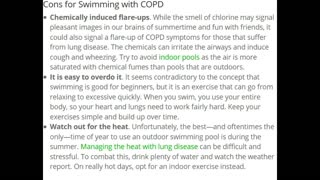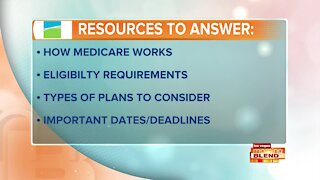Premium Only Content

Managing your COPD in the cold weather! Study/Article Reivew! Living Healthy with COPD!
Managing your COPD in the cold weather! Study/Article Reivew! Living Healthy with COPD!
https://www.northeastlincolnshireccg.nhs.uk/staywell/managing-copd-in-cold-weather/
https://www.blf.org.uk/support-for-you/cold-weather
https://www.everydayhealth.com/columns/health-answers/8-ways-to-manage-copd-in-the-winter/
Do your chronic obstructive pulmonary disease (COPD) flare-ups seem to worsen and become more frequent in the winter months? It’s not your imagination. Researchers who studied 7,000 people with COPD for one year found that COPD-related exacerbations occur twice as often in winter than in summer. The same study found that, although hospitalization rates are constant throughout the year, COPD triggers are more life-threatening in winter.
Some changes you might notice in your exacerbations include:
Increased frequency and severity of coughing
Increased production of phlegm (sputum or mucus) when coughing
Change in the appearance of phlegm
Increased shortness of breath
During those cold winter days, your best bet is to avoid the frigid air as much as possible, as the dry chill is a trigger. But if you must go out, cover your mouth and nose with a clean scarf to maintain the moisture in your lungs. Keep in mind that acute exacerbations cannot be totally prevented, but you can decrease their severity and frequency in the winter by following these eight tips:
1. Maintain COPD treatment
If your COPD is well managed, you will be better able to avoid and mitigate the severity of an exacerbation even if you get a cold or the flu.
ADVERTISING
2. Get flu and pneumonia shots
Make sure you get your flu shot. Also, consult with your physician about getting a pneumonia vaccination to reduce your risk of infection.
3. Know your Alpha-1 Antitrypsin status
If you’ve been diagnosed with COPD, ask your doctor about being tested for Alpha-1 Antitrypsin, a condition in which the body does not make enough of a protein that protects the lungs and liver from damage deficiency, and a risk factor for developing COPD. If you have Alpha-1 but are not being treated specifically for this condition, you’re more likely to have an exacerbation, according to research conducted at the University of Chicago.
4. Avoid sick people
Use common sense in your social interactions. Stay away from hospitals, groups of children, and anyone who has a cold.
5. Wash your hands
A high standard of hygiene is the best defense against germs. Before touching your eyes, nose or mouth make sure you have carefully washed or sanitized your hands, especially when you are in a public place.
6. Clean your humidifiers every other day
It’s important to keep the humidifier functioning at its optimal level in order to keep moisture in the air and prevent mold — another lung irritant.
7. Drink plenty of water
Drinking lots of water can make it easier to breathe, especially if you have a respiratory infection. Remember: you lose water with every breath.
8. Avoid smoke and fumes
Heating your home during the winter can generate lung irritants, especially wood smoke from the fireplace, kerosene, scented candles and incense. Also, because we’re less likely to open the windows in the winter, cleaning products can aggravate your COPD.
Some COPD exacerbations require hospitalization, while others can be safely treated in an outpatient setting. In severe cases, people with COPD exacerbations may need to be on a ventilator, or breathing machine, until their flare-up resolves.
Living Healthy w/ COPD
LHwCOPD
-
 3:00
3:00
jonnysunami15
4 years agoCOPD and Swimming: Here's the pros and cons! Article/Study Review! Living Healthy with COPD!
125 -
 1:20
1:20
KTNV
4 years agoHealthy Senior Living: Your Medicare Options
21 -
 1:19
1:19
KTNV
4 years agoSenior Living Tip: Managing Your Blood Pressure
95 -
 1:18
1:18
KTNV
4 years agoHealthy Senior Living: Healthy Aging
241 -
 1:32
1:32
KTNV
4 years agoHealthy Senior Living
1471 -
 1:31
1:31
KTNV
4 years agoHealthy Senior Living: Senior-Focused Care
6 -
 1:24
1:24
KTNV
4 years agoHEALTHY SENIOR LIVING TIP: Be Proactive In Your Health
7 -
 1:20
1:20
KTNV
4 years agoHealthy Senior Living: Medicare Annual Enrollment
11 -
 1:32
1:32
KTNV
4 years agoHealthy Senior Living Tip: Early Detection
7 -
 1:32
1:32
KTNV
4 years agoHealthy Senior Living Tip: Preventative Care
10